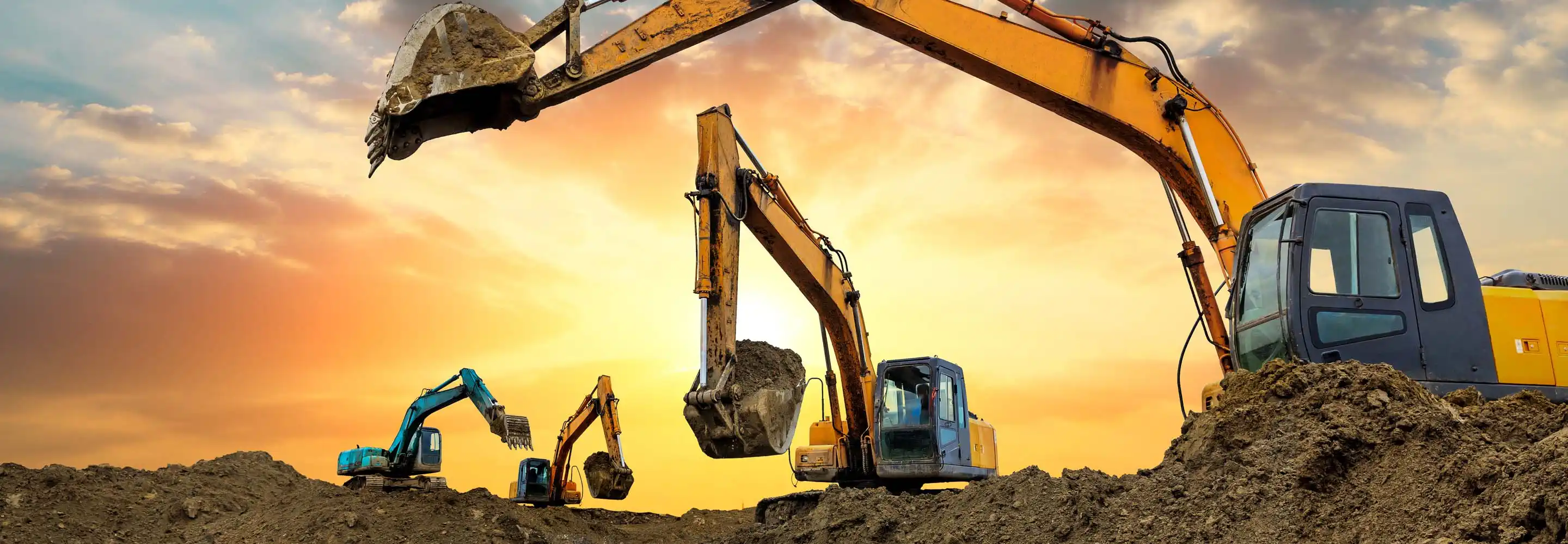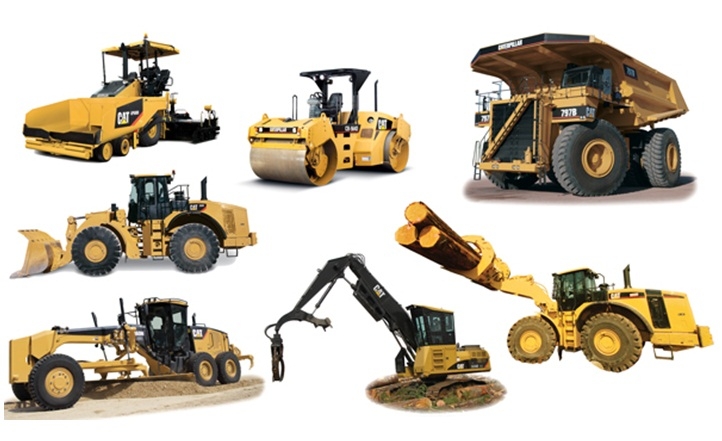Exploring the Financial Conveniences of Renting Construction Equipment Contrasted to Possessing It Long-Term
The choice between renting and having construction equipment is crucial for economic administration in the industry. Renting deals instant cost financial savings and operational flexibility, permitting business to allocate sources extra effectively. On the other hand, ownership comes with significant long-term economic commitments, consisting of maintenance and devaluation. As contractors evaluate these options, the influence on capital, job timelines, and modern technology accessibility ends up being increasingly considerable. Understanding these subtleties is necessary, particularly when considering exactly how they straighten with particular task needs and monetary strategies. What aspects should be prioritized to make sure optimum decision-making in this complex landscape?

Price Comparison: Renting Vs. Having
When examining the economic implications of owning versus renting out building and construction tools, a detailed expense comparison is necessary for making notified decisions. The selection in between having and renting can considerably impact a firm's lower line, and understanding the linked expenses is essential.
Renting out construction equipment usually involves reduced upfront prices, enabling services to allot funding to various other operational demands. Rental contracts usually include versatile terms, enabling business to accessibility advanced machinery without long-lasting dedications. This versatility can be specifically beneficial for temporary projects or varying work. However, rental expenses can accumulate with time, potentially surpassing the cost of possession if equipment is needed for a prolonged period.
Conversely, having building devices needs a significant first financial investment, along with ongoing expenses such as financing, insurance, and depreciation. While possession can lead to long-term financial savings, it additionally locks up funding and might not offer the very same level of adaptability as leasing. In addition, possessing devices requires a commitment to its utilization, which might not always straighten with task needs.
Ultimately, the choice to possess or lease should be based upon a comprehensive evaluation of particular project demands, financial ability, and long-term critical goals.

Maintenance Duties and expenses
The option in between possessing and leasing building and construction tools not just involves monetary factors to consider but likewise encompasses recurring upkeep costs and duties. Possessing equipment needs a substantial commitment to its upkeep, that includes regular inspections, repair work, and prospective upgrades. These obligations can promptly build up, causing unanticipated prices that can strain a budget.
On the other hand, when renting equipment, maintenance is generally the duty of the rental firm. This plan allows service providers to stay clear of the economic worry connected with deterioration, in addition to the logistical difficulties of scheduling repair work. Rental contracts typically include provisions for maintenance, implying that specialists can concentrate on completing projects as opposed to stressing concerning devices condition.
Furthermore, the diverse series of tools offered for rent enables firms to pick the most recent versions with sophisticated technology, which can boost effectiveness and productivity - scissor lift rental in Tuscaloosa Al. By going with rentals, organizations can prevent the long-term liability of devices depreciation and the linked maintenance frustrations. Eventually, evaluating upkeep costs and responsibilities is crucial for making an educated decision regarding whether to own or lease building equipment, significantly affecting total job prices and operational performance

Depreciation Effect On Possession

A significant element to think about in the decision to have construction equipment is the influence of devaluation on overall possession costs. Depreciation stands for the decrease in worth of the devices gradually, influenced by elements such important site as usage, wear and tear, and improvements in modern technology. As devices ages, its market worth decreases, which can substantially affect the owner's economic placement when it comes time to offer or trade the equipment.
For building business, this depreciation can equate to substantial losses if the devices is not made use of to its fullest capacity or if it lapses. Owners need to make up devaluation in their financial projections, which can cause greater total costs compared to renting. Furthermore, the tax obligation effects of devaluation can be complicated; while it might give some tax obligation benefits, these are typically balanced out by the fact of lowered resale worth.
Ultimately, the burden of depreciation stresses the significance of comprehending the long-term monetary commitment involved in having building equipment. Companies should thoroughly evaluate exactly how usually they will certainly make use of the devices and the possible economic influence of devaluation to make an educated decision about possession versus renting out.
Economic Versatility of Renting
Renting building and construction equipment provides significant economic flexibility, enabling business to designate resources extra successfully. This flexibility is especially essential in an industry identified by changing project needs and differing workloads. By opting to rent, organizations can prevent the substantial resources investment needed for buying equipment, protecting cash circulation for various other operational demands.
Additionally, renting out equipment makes it possible for business to customize their equipment selections to particular job requirements without the long-lasting commitment related to ownership. This means that businesses can quickly scale their tools inventory up or down based on present and anticipated project requirements. Subsequently, this flexibility decreases the threat of over-investment in machinery that might come to be underutilized or out-of-date in time.
An additional economic advantage of leasing is the possibility for heavy equipment companies near me tax obligation benefits. Rental settlements are typically considered operating costs, permitting for immediate tax obligation reductions, unlike devaluation on owned equipment, which is spread over a number of years. scissor lift rental in Tuscaloosa Al. This instant expenditure acknowledgment can further improve a company's cash money setting
Long-Term Job Factors To Consider
When evaluating the long-term needs of a building service, the choice in between leasing and having devices ends up being a lot more complicated. Trick factors to think about include project duration, regularity of usage, and the nature of upcoming jobs. For jobs with prolonged timelines, buying devices may seem advantageous due to the possibility for reduced general costs. However, if the tools will certainly not be used consistently across tasks, possessing may lead to underutilization and unneeded expense on storage, insurance, and upkeep.
In addition, technological innovations pose a substantial consideration. The building and construction industry is progressing swiftly, with new devices offering boosted performance and safety functions. Renting out allows business to access the most up to date technology without dedicating to the high ahead of time prices associated with getting. This adaptability is particularly advantageous for services that take care of varied projects requiring different types of devices.
Moreover, economic security plays an important role. Owning devices frequently requires considerable capital expense and depreciation issues, while renting permits even more foreseeable budgeting and capital. Inevitably, the selection between possessing and leasing ought to be aligned with the tactical objectives of the building and construction organization, taking right into account both present and anticipated project needs.
Conclusion
To conclude, leasing building and construction equipment provides substantial monetary advantages over lasting ownership. The decreased in advance costs, removal of upkeep duties, and avoidance of depreciation add my explanation to enhanced capital and monetary flexibility. scissor lift rental in Tuscaloosa Al. In addition, rental repayments work as instant tax deductions, further benefiting professionals. Inevitably, the decision to rent out as opposed to own aligns with the vibrant nature of construction tasks, permitting versatility and accessibility to the most up to date tools without the financial concerns connected with possession.
As tools ages, its market worth diminishes, which can substantially influence the proprietor's financial position when it comes time to offer or trade the devices.
Renting building equipment provides significant financial flexibility, allowing business to allocate sources much more efficiently.Additionally, renting tools makes it possible for firms to customize their devices choices to details task needs without the long-lasting commitment associated with possession.In final thought, leasing construction equipment supplies considerable monetary advantages over long-term possession. Inevitably, the decision to rent instead than own aligns with the dynamic nature of building and construction jobs, allowing for flexibility and access to the latest tools without the monetary concerns linked with possession.